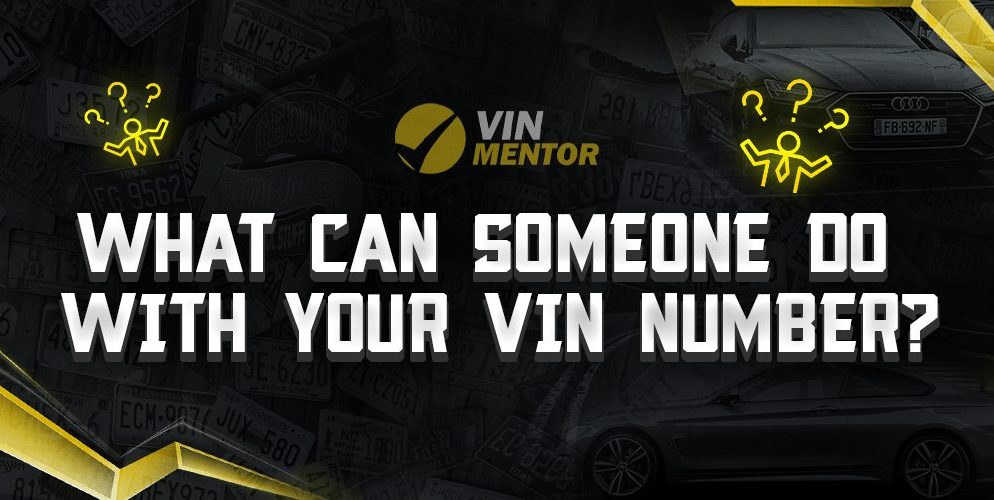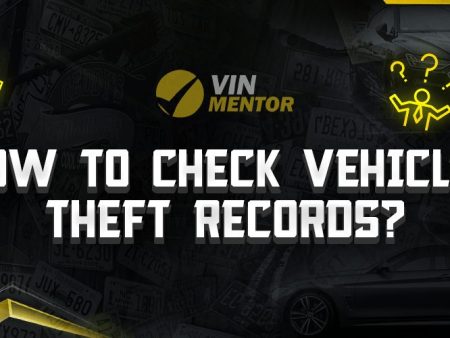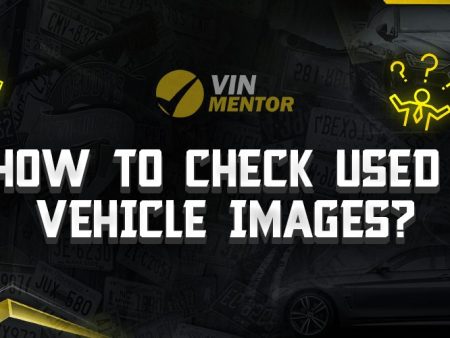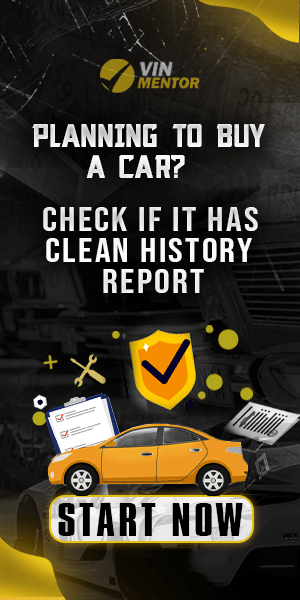

The Vehicle Identification Number (VIN) is a unique code that distinguishes each vehicle and serves as its identifying information. Similar to a Social Security number, it provides crucial information about a car, truck, or motorcycle. VINs are not random combinations of characters; they conform to a standard system used throughout the automotive industry. It is worth noting that disclosing the VIN may pose certain issues, even though it is usually known to the seller.
So, what can another person do with your car’s VIN? Every owner of a vehicle needs to know the answer to this important question, so we suggest you continue reading to find out.
Key Takeaways:
- Using the VIN, you can unlock crucial information about the vehicle – as long as you know how to interpret it.
- The VIN can tell you everything from the make, model, year, engine type, and even the factory the car was built in.
- VIN acts as “fingerprints” for cars – through sales title transfers and license plate changes, but the VIN stays the same, so you can get a fuller picture of a car’s entire history by searching a VIN.
- Sometimes VINs may be used for dishonest purposes.
- Checking the VIN is important for both the buyer and the seller of the vehicle.
What can be done with the car’s VIN?
VIN serves various purposes. For example, during the sale of a vehicle, a potential buyer may use it to perform a VIN check to obtain the vehicle’s history, including past accidents, thefts, and usage. Likewise, vehicle owners can use the VIN to learn about their vehicle’s history. Additionally, law enforcement agencies use VINs to trace and recover stolen vehicles. Although the VIN is not inherently linked to any malicious conduct, it may be employed in various fraudulent activities. Below are a few examples:
- VIN Cloning: The act of VIN cloning involves fraudsters utilizing the VIN of legitimately registered vehicles in order to conceal the fact that they are vending stolen or salvaged automobiles.
- Fraudulent Car Sales: Fraudsters can use a VIN to generate counterfeit ads for cars that either do not exist or have been stolen. They may demand upfront payment and subsequently disappear without a trace after the payment is made.
- Title Washing: The process of eliminating any records of damage, theft, or other unfavorable incidents from a vehicle’s history is known as a technique. Criminals can modify a car’s VIN and obtain a new title in a different state, erasing any negative history associated with the vehicle. They can then sell the vehicle as a clean one at a higher price.
It’s important to highlight that engaging in these actions is against the law and may result in severe repercussions for those involved. Furthermore, it’s highly recommended to conduct a VIN check when buying a used vehicle to ensure that it hasn’t been stolen or implicated in any deceitful behavior.
Conclusion
The VIN plays an important role in selling the car, but it can also sometimes be used by individuals with malicious intent. And while it is often easily accessible to bystanders, it should not be made public on the internet or other platforms. However, if a vehicle is to be sold, disclosing the VIN to a potential buyer is essential as it facilitates the sale and provides more transparency.
To get a Vehicle History Report, you’ll need to search for a VIN using a high-quality specialized service. With the information you find, you might be able to negotiate a better price as a buyer. And if you are selling a car, getting a Vehicle History Report is also a good place to start.
FAQ
Is it safe to disclose my VIN number to potential buyers when selling my vehicle?
Yes, it is safe to disclose your VIN number to potential buyers when selling your vehicle as it is necessary for them to conduct a VIN check to obtain the vehicle’s history.
Can someone use my VIN number to steal my vehicle?
No, someone cannot steal your vehicle by using your VIN number alone. However, they can use it for fraudulent activities like VIN cloning, which involves using a legitimately registered vehicle’s VIN to sell stolen or salvaged automobiles.
How can I protect myself from VIN-related fraud when buying a used car?
You can protect yourself from VIN-related fraud when buying a used car by conducting a VIN check to ensure that the vehicle hasn’t been stolen or implicated in any deceitful behavior.
Can I obtain a Vehicle History Report for free?
There are some websites that claim to offer free Vehicle History Reports, but they often provide incomplete or inaccurate information. To obtain a high-quality and comprehensive Vehicle History Report, you may need to pay for a specialized service.
Can I decode my VIN number myself to obtain information about my vehicle?
Yes, you can decode your VIN number yourself to obtain information about your vehicle by using an online VIN decoder. However, interpreting the information may require some knowledge of the automotive industry and may be confusing to some.












